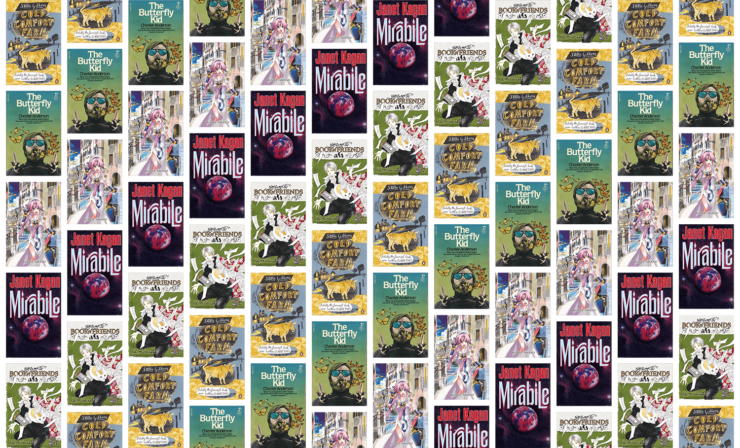Unlike the news, fiction is not limited to a seemingly unending cavalcade of disaster, calamity, and egregiously poor choices, a cavalcade as comforting as glancing up a mountainside to see an avalanche swiftly bearing down on one.1 So, if doomscrolling is getting you down, consider stepping away from the newsfeeds to enjoy a comfort read or two…
Of course, what exactly constitutes a comfort read will vary from person to person2 but here are five that reliably make me smile. Perhaps you will smile as well.
Cold Comfort Farm by Stella Gibbons (1932)
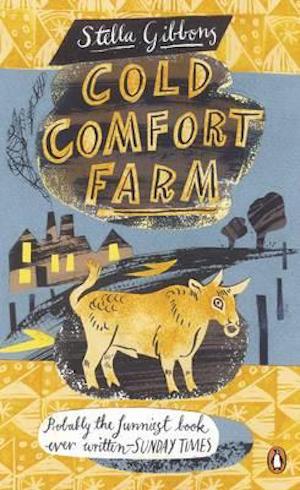
Orphaned at nineteen, Flora Post embodies “every art and grace save that of earning her own living.” Without any other means at hand, she goes to live with distant relatives: the Starkadders, whose homestead, Cold Comfort Farm, is in the depths of rustic Sussex.
Flora intends to earn her living. The rural melodramas of such luminaries as Mary Webb (Gone to Earth) assure Flora that her unfortunate rural relatives must languish under a myriad of troubles that their simple rustic minds are incapable of solving. Indeed, each Starkadder struggles with issues so profound as to seem parodic.3 Flora, on the other hand, is a very modern, very organized girl. What seem like insurmountable challenges for her kinfolk are to her simple challenges easily solved.
Readers who know Cold Comfort Farm only from the otherwise exemplary 1995 film adaptation—”There’ll be no butter in hell!”—may be surprised to learn that Cold Comfort Farm was a science fiction novel of sorts. The 1932 text references the Anglo-Nicaraguan wars of ’46, establishing that the book takes place in what is now an alternate history.
The Butterfly Kid by Chester Anderson (1967)
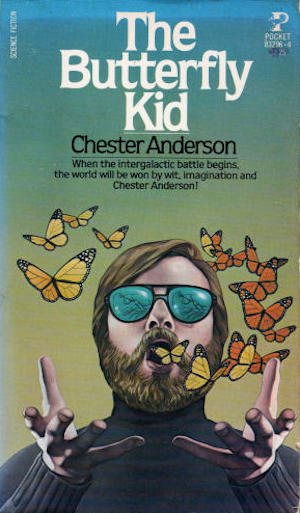
In a 1970s where the Summer of Love never ended, Greenwich Village is home to a diverse and colourful counterculture. Artists, authors, pornographers, and retired spies call the Village home; the squares are pleased to let them have it. It is very nearly an American utopia, save for Sean’s butterflies.
What protagonist Chester Anderson takes for a skillful magic trick is closer to true magic: naïve Sean can create butterflies through sheer act of will. Sean is no super-powered Child of the Atom but rather a beneficiary of Laszlo Scott’s reality pills. This would be a marvelous development except for the fact Scott is a scoundrel. He is not doling out reality pills out of charity. Rather, Scott is doling out reality pills because he is working for malevolent aliens.
It’s only a matter of time before reality pills end up in the digestive tract of some paranoid whose hallucinations will depopulate Earth. All that stands between humanity and certain doom is an assortment of hippies, whose courage may not be backed up by any sort of competence.
Mirabile by Janet Kagan (1991)
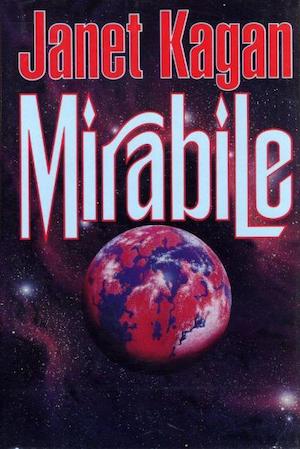
The human colonists who settled Mirabile came armed with cutting-edge biotechnology. Hidden within the genes of their animals was the engineered potential for each creature to spawn other species. It was a marvel of compactness and efficiency that provided the colonists with a far greater number of species than could have otherwise fit into their generation ships.
The problem with this ingenious arrangement was two-fold. Firstly, a mishap erased the records of which animals had what potentials. Secondly, the conditions on Mirabel provoked unforeseen emergent properties in the technology. Rather than enjoying a bounty of lifeforms, the colonists often found themselves surprised, inconvenienced, and endangered by the so-called Dragon’s Teeth.
Annie Jason “Mama Jason” Masmajean is a roving trouble-shooter, investigating each Dragon’s Teeth outbreak and determining how best to deal with them. Each scientific mystery is more delightful than the last!
Aria by Kozue Amano (2001–2008)
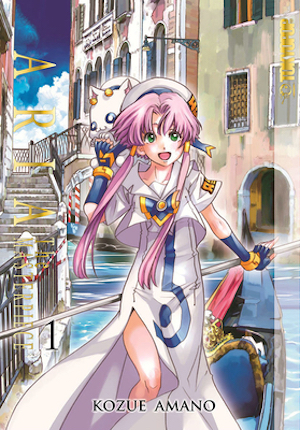
Human efforts to terraform Mars have been what might be described as excessively successful. Not only has Mars been transformed into a verdant life-bearing world, the once Red Planet, now named Aqua, has been transmuted from world desert to a global ocean.
Akari Mizunashi arrives on Aqua, determined to become a gondolier (or “undine,” as they are known in her adopted city of Neo-Venezia). One does not become an undine simply by wishing it so; long, arduous training waits for Akari. However, this is a case where not only is the prize worth the effort, so are the experiences Akari and her fellow Undines in training will have along the way.
Natsume’s Book of Friends by Yuki Midorikawa (2005–present)
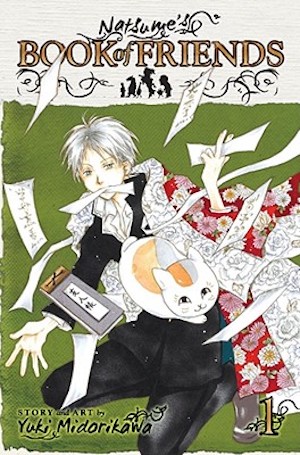
Friendless Reiko Natsume could have mastered social skills. However, being possessed of prodigious spiritual skills, she chose a different path. She stalks supernatural beings, steals their names, and binds them to her. Each being whose name is inscribed in Reiko’s Book of Names is compelled to do her bidding. Close enough to friendship for Reiko.
This would be a grim tale if the protagonist were Reiko. The protagonist is in fact her orphaned grandson Takashi. As friendless as Reiko, Takashi’s reaction on discovering the nature of the Book of Names is not to embrace slavery as a substitute for friends. Instead, the kind-hearted young man sets out to free his grandmother’s victims, regardless of the personal danger that the angry, newly freed supernatural beings might pose to their victimizer’s grandson.
***
There are of course many works I could have mentioned (Legends & Lattes, for example, and A Psalm for the Wild-Built as well, were only passed over because Cole Rush beat me to them in Five Fantasy Cafes I’d Love To Visit.). As I said, which works are feel-good depends very much on the reader’s tastes and no doubt many of you have favourites you feel I should have mentioned. Comments are, as ever, below.
In the words of fanfiction author Musty181, prolific book reviewer and perennial Darwin Award nominee James Davis Nicoll “looks like a default mii with glasses.” His work has appeared in Publishers Weekly and Romantic Times as well as on his own websites, James Nicoll Reviews (where he is assisted by editor Karen Lofstrom and web person Adrienne L. Travis) and the 2021 and 2022 Aurora Award finalist Young People Read Old SFF (where he is assisted by web person Adrienne L. Travis). He is a four-time finalist for the Best Fan Writer Hugo Award, and is surprisingly flammable.
[1]Of course, it’s not all bad. I’ve became addicted to daily updates about a feral cat named Tom-Tom as he acclimates to indoor living.
[2]There’s a special class of comfort fictions whose appeal is that as badly as my day might be going, at least it’s not as bad as the protagonists’ day. “Threads,” for example. “Who's Afraid of Virginia Woolf?” for another.
[3]Fans of “Game of Thrones” are well advised never to imagine Ned Stark dolefully intoning “There have always been Starks at Winterfell” in the same tones that Ada Doom says, “There has always been Starkadders at Cold Comfort Farm.”










